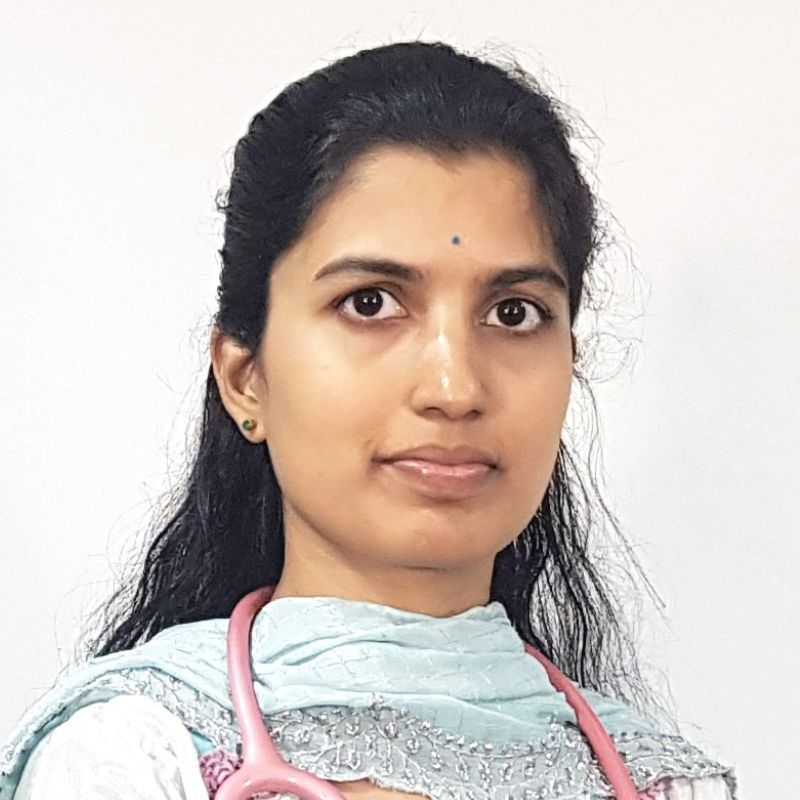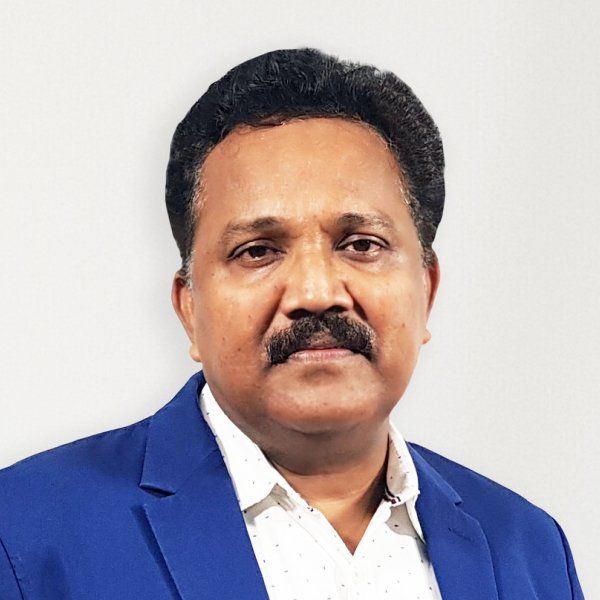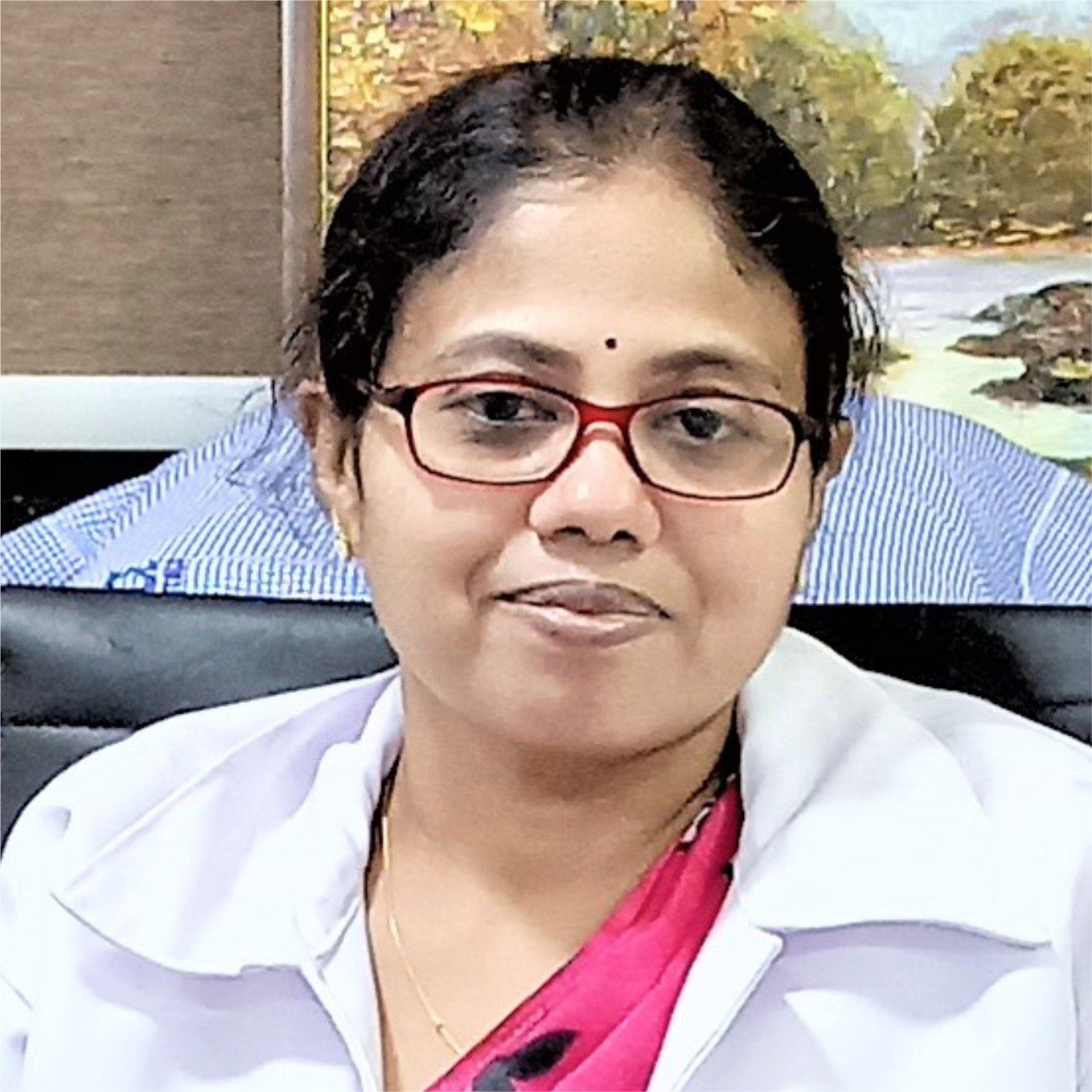Best Paediatric Hospital in Hyderabad, India
PACE Hospitals is proud to be recognized as the best general paediatric hospital in Hyderabad, India. Our team of experienced pediatricians and healthcare professionals are dedicated to providing the highest quality care for infants, children, and adolescents.
We offer a wide range of services, including well-child visits, sick visits, and chronic disease management, as well as nutrition counseling, growth and development assessment, and vaccinations. Our state-of-the-art facilities, including a dedicated pediatric emergency room, ensure that we can provide the best possible care for your child.
Request an appointment
Pediatrics Appointment Enquiry
Why choose PACE Hospitals?
Comprehensive Paediatric Care
Our department offers a wide range of services, including general pediatrics, nutrition counseling, growth and development assessment, vaccinations etc.
Personalized Care and Support
We understand that every child is unique, and we work closely with families to provide personalized care and support that meets the individual needs of each child.
Experienced Pediatricians
Our team includes experienced pediatricians, nurse practitioners, and registered dietitians who are dedicated to providing the highest quality care for your child.
State-of-the-art Facilities
Our department is equipped with the latest technology and resources to ensure that we can provide the best possible care for your child.
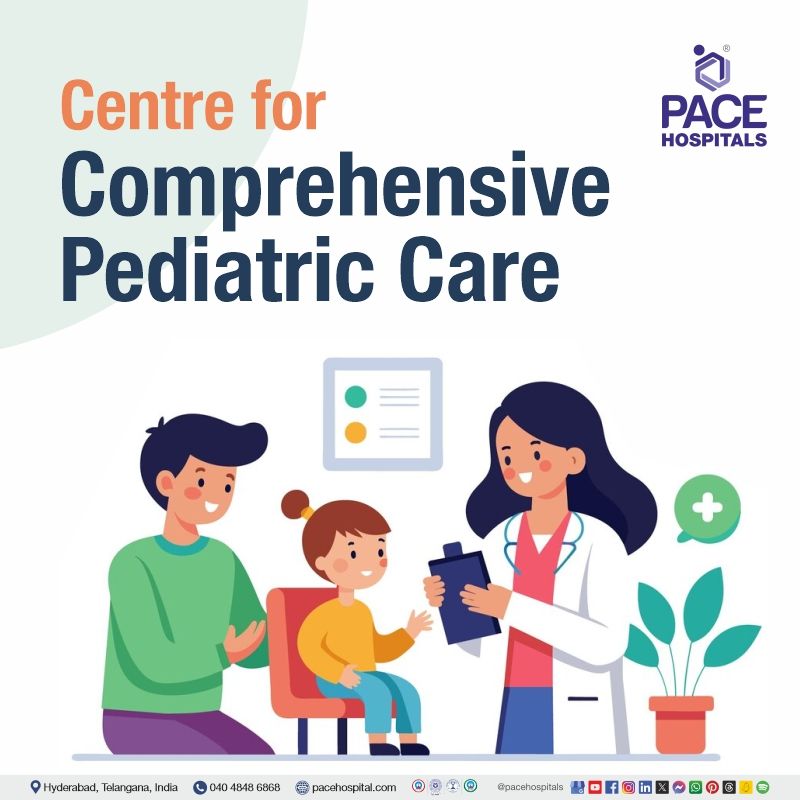
PACE Hospitals is one of the best pediatric hospital in Hyderabad, India; dedicated to providing the highest quality care for infants, children, and adolescents. The Pediatric Department staffed with a team of the best pediatric doctor, experienced pediatricians and healthcare professionals offering a wide range of services, including general pediatrics, nutrition counseling, growth and development assessment, vaccinations, disease management, emergency care, newborn care, and treatment of neonatal diseases.
At PACE Hospitals, we are committed to providing the highest quality pediatric care in a compassionate and family-centered environment. We understand that the health and well-being of your child is your top priority, and it is ours too. Here is an overview of the services we offer:
General Pediatrics Services
We provide comprehensive medical care for infants, children, and adolescents, including well-child visits, sick visits, and chronic disease management. Our pediatricians are experienced in diagnosing and treating a wide range of pediatric conditions, and work closely with families to provide personalized care and support.
Nutrition Counseling
Proper nutrition is essential for the growth and development of infants, children, and adolescents. Our registered dietitians provide personalized nutrition plans to help your child maintain a healthy weight and get the nutrients they need. We can provide guidance on feeding, meal planning, and supplements, and can help you make informed choices about the foods your child eats.
Growth & Development Assessment
We monitor your child's growth and development at every visit, and provide guidance and support to help them reach their full potential. We track your child's height, weight, and head circumference, and assess their motor, cognitive, and social development. We can also provide resources and referrals for additional support and services as needed.
Pediatric Vaccination
Vaccinations are an important part of preventive healthcare for infants, children, and adolescents. We offer a full range of vaccinations to protect your child from preventable diseases, according to the recommended
immunization schedule. Our team can provide education and counseling about the benefits and risks of vaccination, and can help you make informed decisions about your child's immunizations.
Pediatric Diseases Management
Our pediatricians are experienced in the diagnosis and management of a wide range of pediatric diseases and conditions, including asthma, allergies, and infections. We use a variety of treatments and therapies to help manage these conditions, and work closely with families to develop individualized care plans.
Emergency Pediatric Care
We have a dedicated pediatric emergency room, staffed by pediatricians and nurses trained in emergency medicine, to provide prompt and effective care for your child in the event of an emergency. We are equipped to handle a wide range of pediatric emergencies, including respiratory distress, dehydration, and trauma.
Newborn Care
We provide comprehensive care for newborns, including routine newborn exams, jaundice treatment, and breastfeeding support. Our team includes experienced neonatologists and nurse practitioners who are dedicated to providing the best possible outcomes for our tiniest patients.
Treatment of Neonatal Diseases
Our neonatologists and nurse practitioners are experienced in the care of premature and sick newborns, and are dedicated to providing the best possible outcomes for our tiniest patients. We have specialized neonatal care units, equipped with the latest technology and resources, to provide the best possible care for newborns with medical conditions.
3,28,338
99,825
684
2011
Best Pediatric Doctor in Hyderabad | General Pediatrician
Dr. CH Madhusudhan
MBBS, MS - General Surgery (Osmania Medical College, Hyderabad, Telangana), FRCS (UK), MCh - Surgical Gastroenterology / G.I. Surgery (AIIMS, New Delhi), Liver Transplantation (USA)
Senior Consultant Surgical Gastroenterologist and Liver Transplant Surgeon
When to consult paediatrician?
It is important to consult a pediatrician if you have any concerns about your child's health, development, or behavior. Here are some situations in which it is especially important to seek medical attention:
- Your child is sick or injured: If your child is experiencing fever, vomiting, diarrhea, cough, cold, or other symptoms of illness, or if they have been injured, it is important to consult a pediatrician. A pediatrician can evaluate your child's condition, provide a diagnosis, and recommend appropriate treatment.
- Your child has a chronic condition: If your child has a chronic condition, such as asthma, diabetes, or epilepsy, it is important to consult a pediatrician regularly for ongoing care and management. A pediatrician can help you manage your child's condition, monitor their progress, and adjust their treatment plan as needed.
- Your child has developmental delays: If you are concerned about your child's development, such as their speech, language, motor skills, or social skills, it is important to consult a pediatrician. A pediatrician can assess your child's development, identify any delays or issues, and provide referrals to specialists or therapy services as needed.
- Your child has behavioral concerns: If you are concerned about your child's behavior, such as tantrums, aggression, or anxiety, it is important to consult a pediatrician. A pediatrician can assess your child's behavior, provide guidance and support, and refer you to a specialist if necessary.
- You have questions or concerns about your child's health or development: If you have any questions or concerns about your child's health or development, it is important to consult a pediatrician. A pediatrician can provide education, guidance, and support to help you make informed decisions about your child's care.
In general, it is a good idea to consult a pediatrician if you have any concerns about your child's health, development, or behavior. A pediatrician can provide the expertise and resources you need to ensure that your child is healthy and happy.
Paediatric Health Education Videos by Doctor
Frequently Asked Questions
What we treat?
We offer a treatment for a comprehensive and compassionate pediatric care for infants, children, and adolescents suffering from paediatric diseases and conditions.
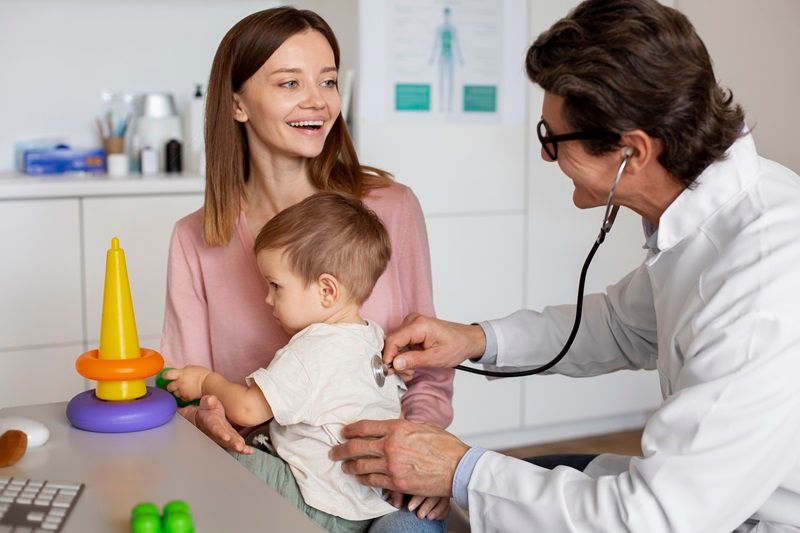
Why to choose PACE Hospitals?
- A Multi-Super Speciality Hospital.
- NABH, NABL, NBE & NABH - Nursing Excellence accreditation.
- State-of-the-art Liver and Kidney transplant centre.
- Empanelled with all TPA’s for smooth cashless benefits.
- Centralized HIMS (Hospital Information System).
- Computerized health records available via website.
- Minimum waiting time for Inpatient and Outpatient.
- Round-the-clock guidance from highly qualified paediatricians.
- Standardization of ethical medical care.
- 24X7 Outpatient & Inpatient Pharmacy Services.
- State-of-the-art operation theaters.
- Intensive Care Units (Surgical and Medical) with ISO-9001 accreditation.

